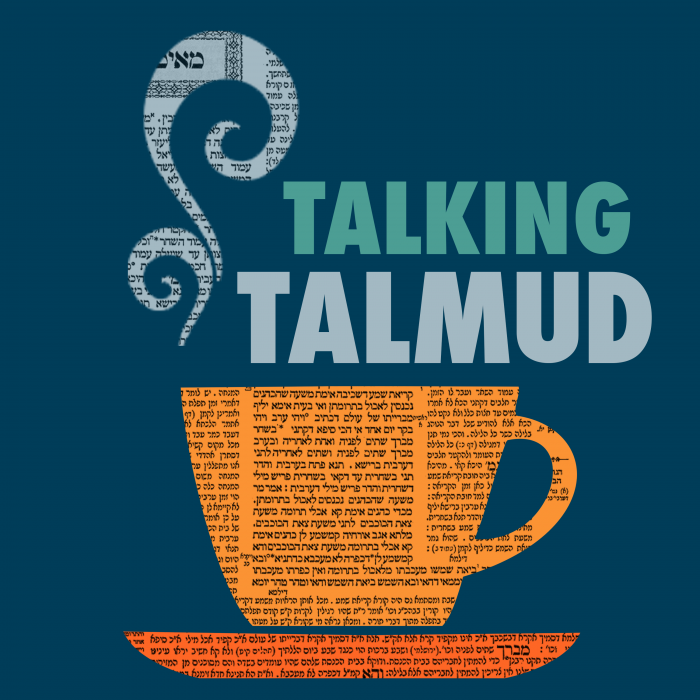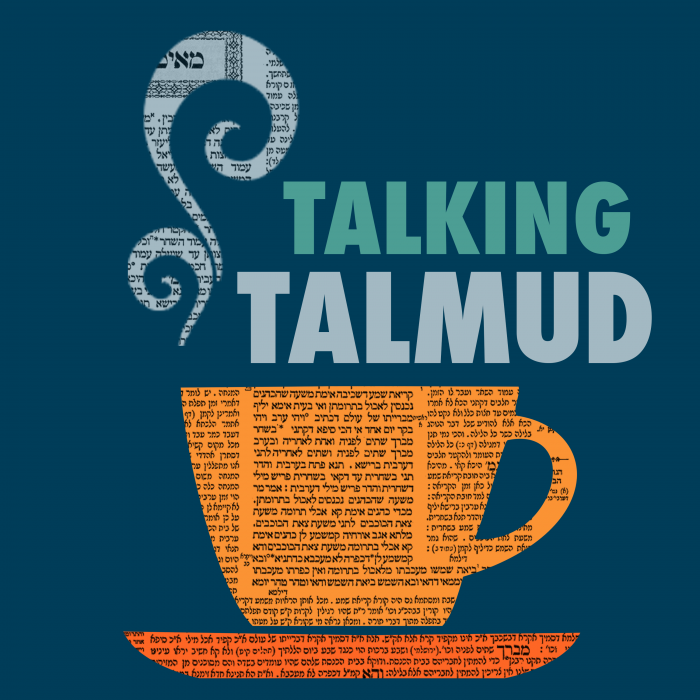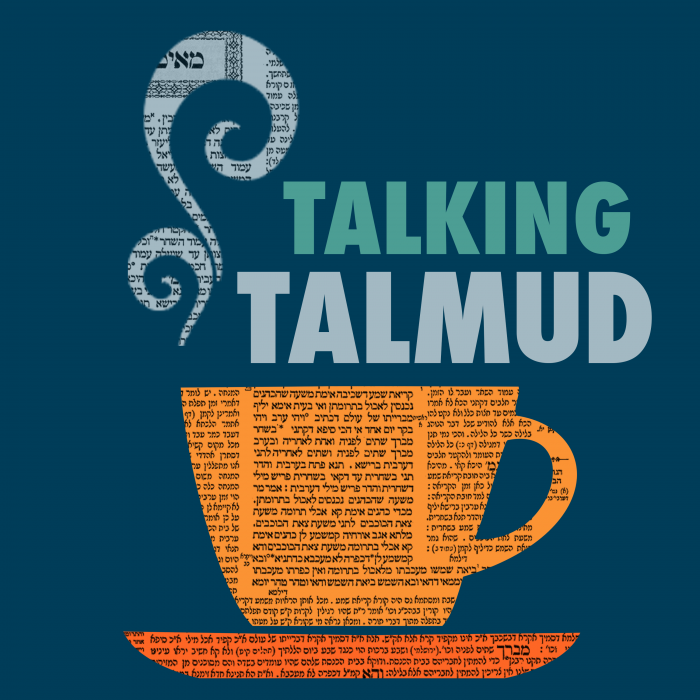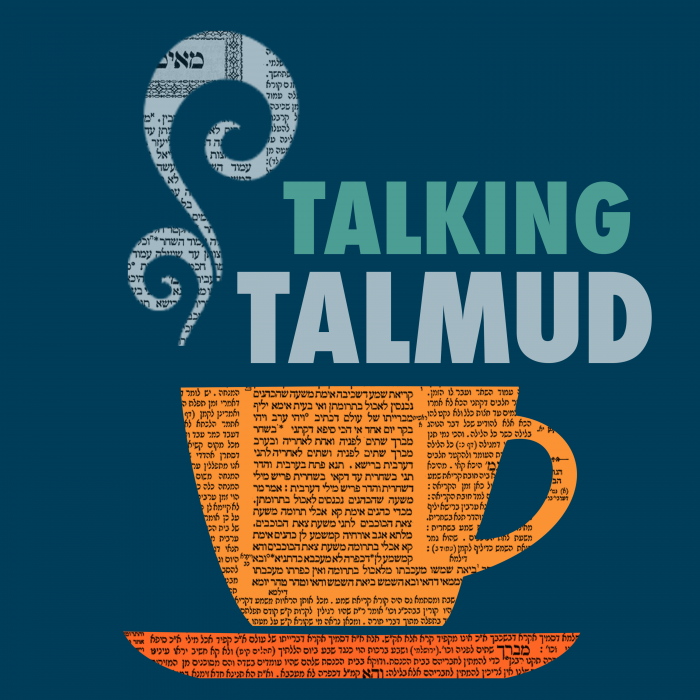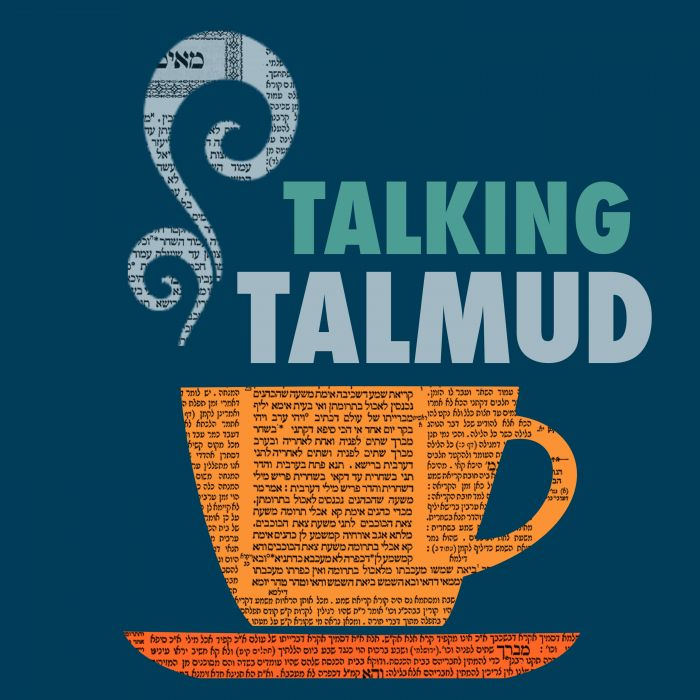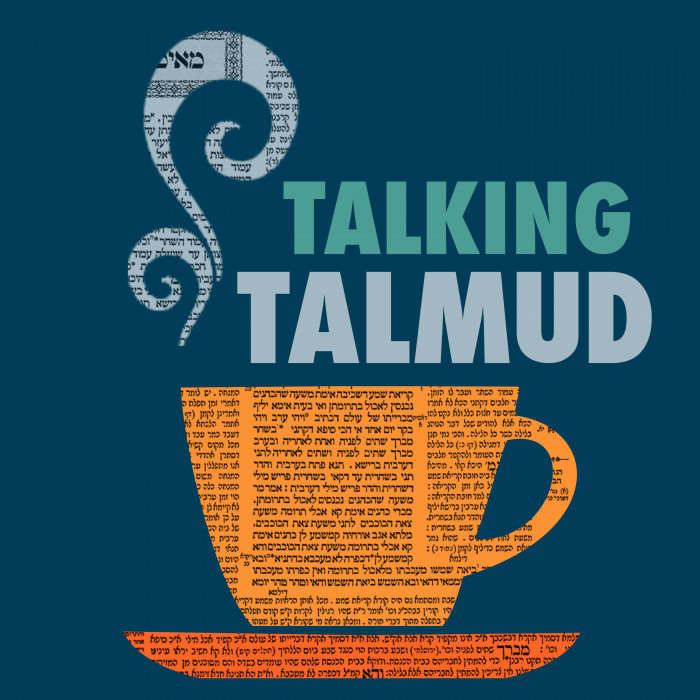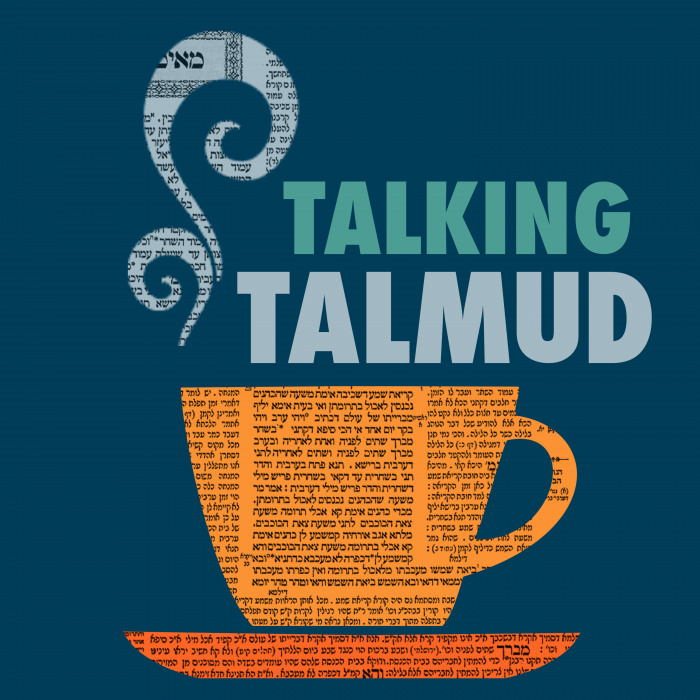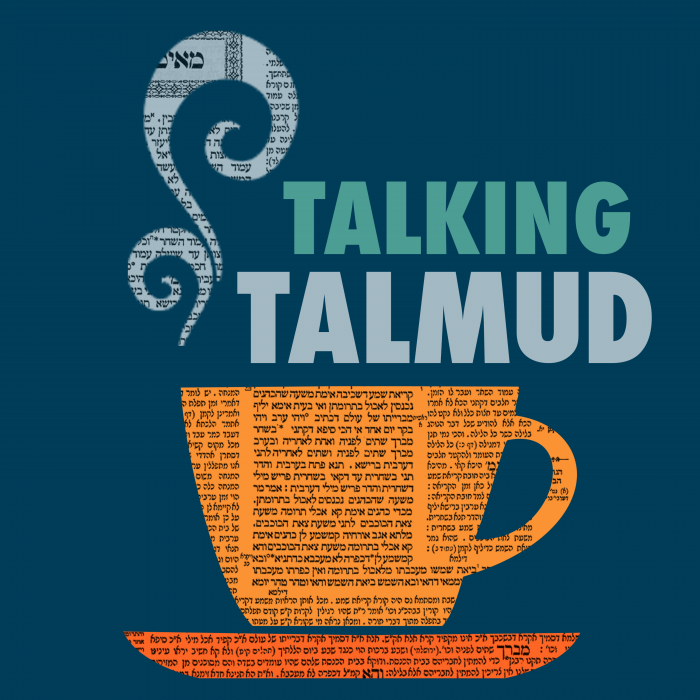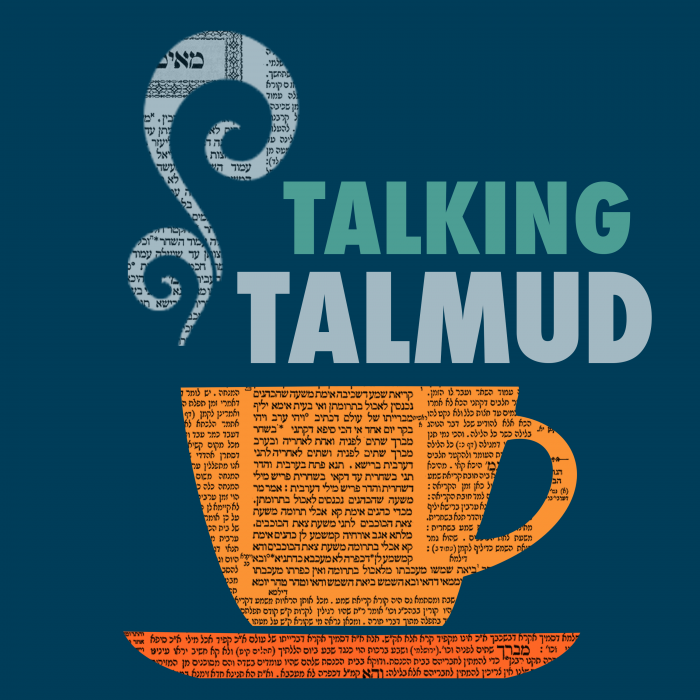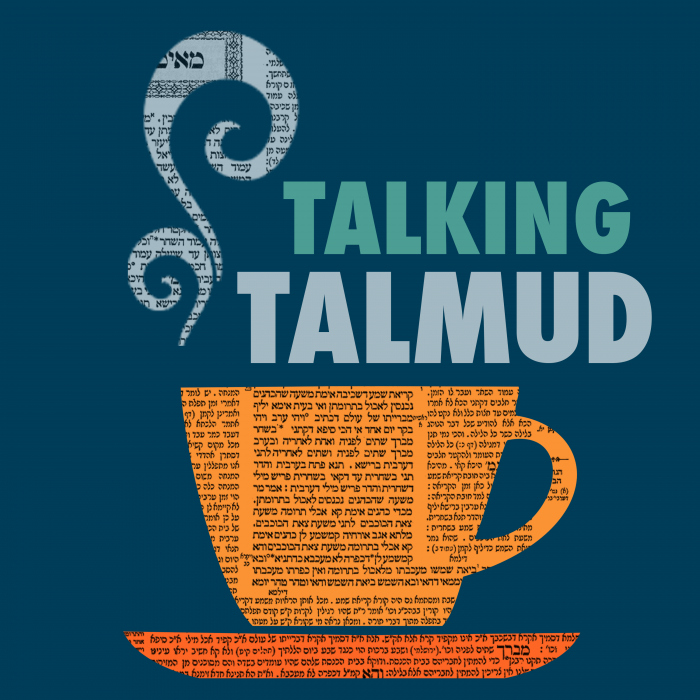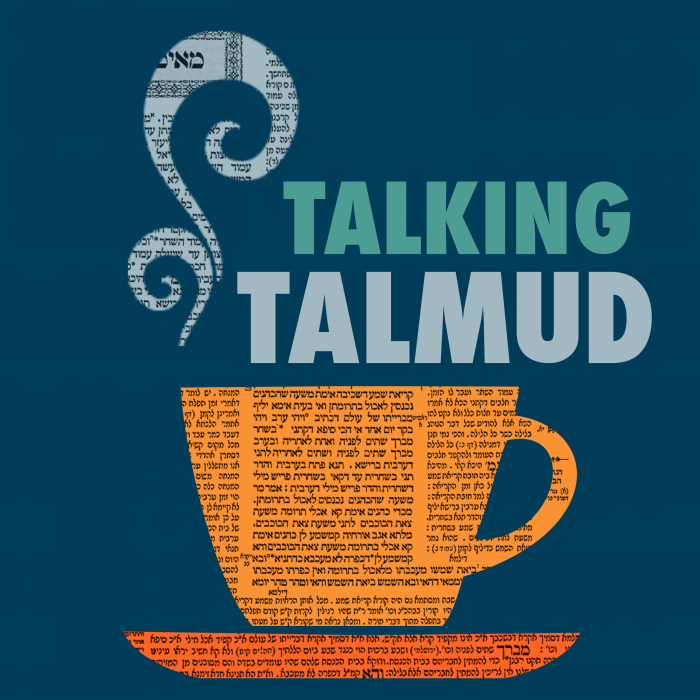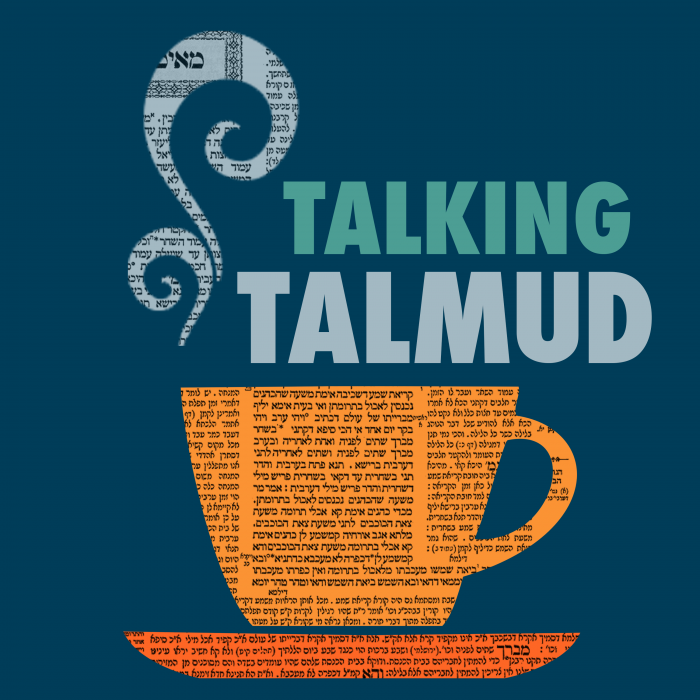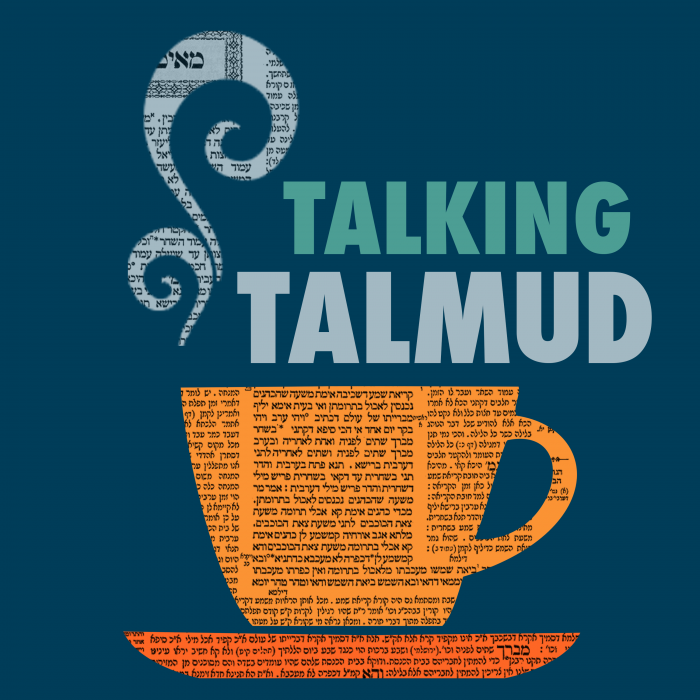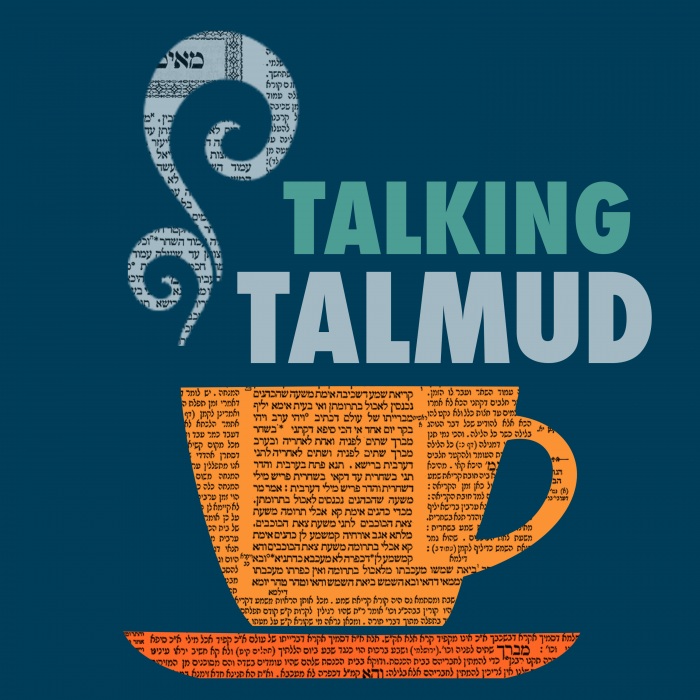What is the order of activities one should do in the morning? Does one need to search far for water to wash one’s hands before shema and shmone esreh? Is it more important for one than the other? Does one need to hear the words one says in shema? Can one just think it in one’s heart? What about other blessings? Is the requirement the same? What exactly are the different opinions? How many different opinions are there? What do we learn from the words “and one should write them” what parts should be written? How careful does one need to be with reciting the words carefully? With which words does one need to be particularly careful?
This week’s learning is sponsored by Nira Feldman in loving memory of her mother, Faye Darack Z’L 3rd yahrzeit. “She was a dedicated Hadran learner and continues to inspire us with her curiosity and love of learning each day. We miss her deeply.”
Want to dedicate learning? Get started here:


Today’s daily daf tools:
This week’s learning is sponsored by Nira Feldman in loving memory of her mother, Faye Darack Z’L 3rd yahrzeit. “She was a dedicated Hadran learner and continues to inspire us with her curiosity and love of learning each day. We miss her deeply.”
Today’s daily daf tools:
Delve Deeper
Broaden your understanding of the topics on this daf with classes and podcasts from top women Talmud scholars.
New to Talmud?
Check out our resources designed to help you navigate a page of Talmud – and study at the pace, level and style that fits you.
The Hadran Women’s Tapestry
Meet the diverse women learning Gemara at Hadran and hear their stories.
Berakhot 15
יִפָּנֶה, וְיִטּוֹל יָדָיו, וְיַנִּיחַ תְּפִילִּין, וְיִקְרָא קְרִיאַת שְׁמַע, וְיִתְפַּלֵּל, וְזוֹ הִיא מַלְכוּת שָׁמַיִם שְׁלֵמָה.
should relieve himself, wash his hands, don phylacteries, recite Shema, and pray, and that is acceptance of the complete Kingdom of Heaven.
אָמַר רַבִּי חִיָּיא בַּר אַבָּא אָמַר רַבִּי יוֹחָנָן: כָּל הַנִּפְנֶה, וְנוֹטֵל יָדָיו, וּמַנִּיחַ תְּפִילִּין, וְקוֹרֵא קְרִיאַת שְׁמַע, וּמִתְפַּלֵּל — מַעֲלֶה עָלָיו הַכָּתוּב כְּאִלּוּ בָּנָה מִזְבֵּחַ וְהִקְרִיב עָלָיו קׇרְבָּן, דִּכְתִיב: ״אֶרְחַץ בְּנִקָּיוֹן כַּפָּי וַאֲסוֹבְבָה אֶת מִזְבַּחֲךָ ה׳״. אֲמַר לֵיהּ רָבָא: לָא סָבַר לַהּ מָר כְּאִילּוּ טָבַל, דִּכְתִיב: ״אֶרְחַץ [בְּנִקָּיוֹן]״ — וְלָא כָּתַב ״אַרְחִיץ [כַּפָּי]״.
On a similar note, Rabbi Ḥiyya bar Abba said that Rabbi Yoḥanan said: Anyone who relieves himself, washes his hands, dons phylacteries, recites Shema, and prays, the verse ascribes credit to him as if he built an altar and offered a sacrifice upon it, as it is written: “I will wash in purity my hands, and I will encircle the altar of the Lord” (Psalms 26:6). Rava said to him: Do you not maintain, Master, that one who does so, it is as if he immersed his entire body, as it is written: “I will wash in purity,” and it is not written: “I will wash my hands”?
אֲמַר לֵיהּ רָבִינָא לְרָבָא: חֲזִי מָר הַאי צוּרְבָּא מֵרַבָּנָן דַּאֲתָא מִמַּעְרְבָא וְאָמַר: מִי שֶׁאֵין לוֹ מַיִם לִרְחוֹץ יָדָיו — מְקַנֵּחַ יָדָיו בְּעָפָר וּבִצְרוֹר וּבְקִסְמִית.
Ravina said to Rava: My Master, look at this Torah scholar [tzurva merabbanan] who came from Eretz Yisrael and said something astonishing: One who has no water with which to wash his hands, it is sufficient that he wipes his hands with earth, a rock, or a sliver of wood.
אֲמַר לֵיהּ: שַׁפִּיר קָאָמַר, מִי כְּתִיב ״אֶרְחַץ בְּמַיִם״? ״בְּנִקָּיוֹן״ כְּתִיב — כֹּל מִידֵּי דִּמְנַקֵּי, דְּהָא רַב חִסְדָּא לָיֵיט אַמַּאן דִּמְהַדַּר אַמַּיָּא בְּעִידָּן צְלוֹתָא.
Rava replied to Ravina: He spoke well, as, is it written: I will wash with water? In purity, is written referring to anything that cleans, as Rav Ḥisda would curse one who went out of his way to seek water at the time of prayer.
וְהָנֵי מִילֵּי לִקְרִיאַת שְׁמַע, אֲבָל לִתְפִלָּה מְהַדַּר. וְעַד כַּמָּה? — עַד פַּרְסָה. וְהָנֵי מִילֵּי לְקַמֵּיהּ, אֲבָל לַאֲחוֹרֵיהּ — אֲפִילּוּ מִיל אֵינוֹ חוֹזֵר. [וּמִינַּהּ] מִיל הוּא דְּאֵינוֹ חוֹזֵר, הָא פָּחוֹת מִמִּיל — חוֹזֵר.
With regard to seeking water, the Gemara comments: This applies only to the recitation of Shema, as the time for its recitation is limited, and if one goes seeking water he may run out of time. However, for prayer, which may be recited all day, one must go out of his way to seek water. And how far must one go out of his way to seek water? As far as a parasang [parsa]. And this, one parsa, applies only before him but behind him, he need not return even one mil. From this one may infer that he need not return one mil, but one must return less than one mil.
מַתְנִי׳ הַקּוֹרֵא אֶת שְׁמַע וְלֹא הִשְׁמִיעַ לְאׇזְנוֹ — יָצָא. רַבִּי יוֹסֵי אוֹמֵר: לֹא יָצָא.
MISHNA: One who recites Shema and did not recite in a manner audible to his own ear, either because he read inaudibly or because he is deaf, fulfilled his obligation. Rabbi Yosei says: He did not fulfill his obligation.
קָרָא וְלֹא דִּקְדֵּק בְּאוֹתִיּוֹתֶיהָ, רַבִּי יוֹסֵי אוֹמֵר: יָצָא. רַבִּי יְהוּדָה אוֹמֵר: לֹא יָצָא.
One who recited Shema and was not sufficiently precise in his enunciation of its letters, Rabbi Yosei says: He fulfilled his obligation. Rabbi Yehuda says: He did not fulfill his obligation.
הַקּוֹרֵא לְמַפְרֵעַ — לֹא יָצָא. קָרָא וְטָעָה — יַחְזוֹר לִמְקוֹם שֶׁטָּעָה.
One who recited Shema out of order, meaning he did not read the verses sequentially, he did not fulfill his obligation. One who recited and erred, should return to the place in Shema that he erred.
גְּמָ׳ מַאי טַעְמָא דְּרַבִּי יוֹסֵי? מִשּׁוּם דִּכְתִיב ״שְׁמַע״ — הַשְׁמַע לְאׇזְנְךָ מָה שֶׁאַתָּה מוֹצִיא מִפִּיךָ. וְתַנָּא קַמָּא סָבַר, ״שְׁמַע״ — בְּכָל לָשׁוֹן שֶׁאַתָּה שׁוֹמֵעַ.
GEMARA: The discussion in our mishna dealt with the question of whether or not one who recites Shema without hearing it fulfilled his obligation. The Gemara clarifies the opinions cited in the mishna: What is the reason for Rabbi Yosei’s opinion that one must recite Shema in a manner audible to his own ear? Because it is written: Shema, hear, and Rabbi Yosei holds that this is to be understood literally, meaning: Make your ears hear what your mouth utters. The first tanna, who holds that one fulfills his obligation even if he does not hear his recitation of Shema, holds that Shema, hear, comes to teach something else; one may recite Shema in any language that one can hear and understand, and there is no requirement to recite Shema specifically in Hebrew.
וְרַבִּי יוֹסֵי, תַּרְתֵּי שְׁמַע מִינַּהּ.
And Rabbi Yosei agrees with the principle derived by the first tanna from the word Shema; however Rabbi Yosei holds: Derive two halakhot from the word Shema; first, one may recite Shema in any language, and second, one must recite it in a manner audible to his own ears.
תְּנַן הָתָם: חֵרֵשׁ הַמְדַבֵּר וְאֵינוֹ שׁוֹמֵעַ — לֹא יִתְרוֹם. וְאִם תָּרַם — תְּרוּמָתוֹ תְּרוּמָה.
We learned there in a mishna regarding the laws of separating tithes: A deaf person who can speak but cannot hear may not separate teruma ab initio, because he must recite a blessing over the separation of teruma and he is unable to hear the blessing. But after the fact, if he did separate it, his teruma is valid teruma.
מַאן תְּנָא חֵרֵשׁ הַמְדַבֵּר וְאֵינוֹ שׁוֹמֵעַ דִּיעֲבַד — אִין, לְכַתְּחִלָּה — לָא?
The Gemara asks: Who is this tanna who holds that if a deaf person who can speak but cannot hear separates teruma, it is considered teruma after the fact, but ab initio he may not do so?
אָמַר רַב חִסְדָּא: רַבִּי יוֹסֵי הִיא, דִּתְנַן: הַקּוֹרֵא אֶת ״שְׁמַע״ וְלֹא הִשְׁמִיעַ לְאׇזְנוֹ — יָצָא, דִּבְרֵי רַבִּי יְהוּדָה. רַבִּי יוֹסֵי אוֹמֵר: לֹא יָצָא.
Rav Ḥisda said: It is Rabbi Yosei, as we learned in our mishna: One who recites Shema and did not recite it so it was audible to his own ear, he fulfilled his obligation. This is the statement of Rabbi Yehuda. Rabbi Yosei says: He did not fulfill his obligation.
עַד כָּאן לָא קָאָמַר רַבִּי יוֹסֵי לֹא יָצָא, אֶלָּא גַּבֵּי קְרִיאַת שְׁמַע דְּאוֹרָיְיתָא, אֲבָל תְּרוּמָה — מִשּׁוּם בְּרָכָה הוּא, וּבְרָכָה דְּרַבָּנַן וְלָא בִּבְרָכָה תַּלְיָא מִילְּתָא.
Rav Ḥisda elaborates: Rabbi Yosei only stated that a deaf person did not fulfill his obligation even after the fact with regard to the recitation of Shema, which is a biblical obligation. But with regard to teruma, the concern is due to the blessing recited over its separation. And the blessing is by rabbinic law, and the separation of teruma itself is not contingent upon the blessing. The separation of teruma takes effect regardless of whether or not a blessing is recited, so in the case of a deaf person, he fulfilled his obligation after the fact.
וּמִמַּאי דְּרַבִּי יוֹסֵי הִיא, דִּילְמָא רַבִּי יְהוּדָה הִיא? וְאָמַר גַּבֵּי קְרִיאַת שְׁמַע נָמֵי דִּיעֲבַד — אִין, לְכַתְּחִלָּה — לָא. תֵּדַע, דְּקָתָנֵי: ״הַקּוֹרֵא״, דִּיעֲבַד — אִין, לְכַתְּחִלָּה — לָא.
The Gemara challenges the assertion that this mishna is in accordance with the opinion of Rabbi Yosei: And from where do you infer that this is the opinion of Rabbi Yosei? Perhaps it is in accordance with the opinion of Rabbi Yehuda, and he said that with regard to the recitation of Shema as well, if one did not recite it in a manner audible to his own ears, he has fulfilled his obligation after the fact, but ab initio he may not do so. This opinion is identical to that of the tanna in the case of teruma. Know that this is true because it was taught in the mishna: One who recites Shema without it being audible to his own ear. The tanna formulated the dispute in a case which was after the fact. If one already recited Shema in this manner, yes, he fulfilled his obligation. The tanna did not formulate the case in the mishna using ab initio language, i.e., one may recite Shema in a manner inaudible to his own ears because, ab initio, he may not do so according to Rabbi Yehuda.
אָמְרִי: הַאי דְּקָתָנֵי ״הַקּוֹרֵא״, לְהוֹדִיעֲךָ כֹּחוֹ דְרַבִּי יוֹסֵי דְּאָמַר דִּיעֲבַד נָמֵי לָא. דְּאִי רַבִּי יְהוּדָה, אֲפִילּוּ לְכַתְּחִלָּה נָמֵי יָצָא.
The Gemara rejects this proof. In explanation, they say: The fact that the mishna taught the halakha utilizing the after the fact language: One who recited, does not prove that Rabbi Yehuda also holds that one may not ab initio recite Shema in a manner inaudible to his own ears. Rather, the mishna formulated the halakha in that manner is to convey the far-reaching nature of the opinion of Rabbi Yosei, who said that if one does so, even after the fact, he did not fulfill his obligation to recite Shema. As, if it sought to convey the opinion of Rabbi Yehuda, then even ab initio he may fulfill his obligation without hearing the recitation.
בְּמַאי אוֹקִימְתָּא — כְּרַבִּי יוֹסֵי? וְאֶלָּא הָא דְתַנְיָא: לֹא יְבָרֵךְ אָדָם בִּרְכַּת הַמָּזוֹן בְּלִבּוֹ, וְאִם בֵּירַךְ — יָצָא.
The Gemara challenges this conclusion: How did you establish the reasoning of the mishna dealing with the laws of terumot? In accordance with the opinion of Rabbi Yosei, who holds that one who does not hear his recitation does not fulfill his obligation even after the fact. But what about that which was taught in a baraita: One may not recite the Grace after Meals, which like Shema and unlike the blessing on separating teruma is a Torah commandment, in his heart, inaudibly, and if he recited the blessing in that manner, he fulfilled his obligation?
מַנִּי? לָא רַבִּי יוֹסֵי וְלָא רַבִּי יְהוּדָה. דְּאִי רַבִּי יְהוּדָה — הָא אָמַר, לְכַתְּחִלָּה נָמֵי יָצָא? אִי רַבִּי יוֹסֵי, דִּיעֲבַד נָמֵי לָא!
In accordance with whose opinion is this baraita? It is in accordance neither with the opinion of Rabbi Yosei nor with the opinion of Rabbi Yehuda. As if you say that it is in accordance with the opinion of Rabbi Yehuda, didn’t he say according to the way the Gemara explained his position that even ab initio he may fulfill his obligation in that manner, and he need not recite it audibly. In that case, why should one refrain from reciting the blessing in his heart? And if you say that it is in accordance with the opinion of Rabbi Yosei; he holds that even after the fact, he did not fulfill his obligation.
אֶלָּא מַאי, רַבִּי יְהוּדָה. וְדִיעֲבַד — אִין, לְכַתְּחִלָּה — לָא.
Rather, what must we say? We must revert to the explanation that it is in accordance with the opinion of Rabbi Yehuda who holds that after the fact, yes, he fulfilled his obligation, but ab initio, no, one may not recite it in a manner inaudible to his own ears. Therefore the baraita concerning Grace after Meals is in accordance with the opinion of Rabbi Yehuda.
אֶלָּא הָא דְתָנֵי רַבִּי יְהוּדָה בְּרֵיהּ דְּרַבִּי שִׁמְעוֹן בֶּן פַּזִּי: חֵרֵשׁ הַמְדַבֵּר וְאֵינוֹ שׁוֹמֵעַ — תּוֹרֵם לְכַתְּחִלָּה, מַנִּי?
The Gemara questions this: But what about that baraita which was taught by Rabbi Yehuda, son of Rabbi Shimon ben Pazi: A deaf person who speaks but does not hear may, ab initio, separate teruma. In accordance with whose opinion is that baraita?
לָא רַבִּי יְהוּדָה וְלָא רַבִּי יוֹסֵי. אִי רַבִּי יְהוּדָה — הָא אָמַר דִּיעֲבַד אִין, לְכַתְּחִלָּה לָא. אִי רַבִּי יוֹסֵי — הָא אָמַר דִּיעֲבַד נָמֵי לָא?
According to what we have said, it is in accordance neither with the opinion of Rabbi Yehuda nor with the opinion of Rabbi Yosei. As if you say that it is in accordance with the opinion of Rabbi Yehuda, didn’t he say that after the fact, yes, he fulfilled his obligation, although it was inaudible to his own ears, but ab initio, no, he may not fulfill his obligation in that manner? And if you say that it is in accordance with the opinion of Rabbi Yosei, didn’t he say that if he does not hear himself, even after the fact he did not fulfill his obligation? If so, whose opinion is reflected in this baraita?
אֶלָּא, לְעוֹלָם רַבִּי יְהוּדָה, וַאֲפִילּוּ לְכַתְּחִלָּה נָמֵי. וְלָא קַשְׁיָא, הָא — דִידֵיהּ, הָא — דְרַבֵּיהּ. דִּתְנַן, רַבִּי יְהוּדָה אוֹמֵר מִשּׁוּם רַבִּי אֶלְעָזָר בֶּן עֲזַרְיָה: הַקּוֹרֵא אֶת שְׁמַע צָרִיךְ שֶׁיַּשְׁמִיעַ לְאׇזְנוֹ, שֶׁנֶּאֱמַר: ״שְׁמַע יִשְׂרָאֵל ה׳ אֱלֹהֵינוּ ה׳ אֶחָד״. אָמַר לוֹ רַבִּי מֵאִיר: הֲרֵי הוּא אוֹמֵר ״אֲשֶׁר אָנֹכִי מְצַוְּךָ הַיּוֹם עַל לְבָבֶךָ״ — אַחַר כַּוָּנַת הַלֵּב הֵן הֵן הַדְּבָרִים.
Rather, we must revert to the previous explanation but with a slight revision, and say that actually it is in accordance with the opinion of Rabbi Yehuda, and even ab initio, a deaf person may also separate teruma. And this is not difficult and there is no contradiction between the mishna and the baraita, as this is his own opinion and that is his teacher’s opinion. As it was taught in a baraita: Rabbi Yehuda said in the name of Rabbi Elazar ben Azarya: One who recites Shema must make it audible to his ears, as it is stated: “Hear, Israel, the Lord is our God, the Lord is One.” This means that he must do so, but after the fact, if he failed to do so, he nevertheless fulfilled his obligation. The baraita continues: Rabbi Meir said to him: It says: “Which I command you this day, upon your heart;” which Rabbi Meir explains to mean that the significance of the words follows the intention of the heart and even ab initio one need not recite Shema audibly.
הַשְׁתָּא דְּאָתֵית לְהָכִי, אֲפִילּוּ תֵּימָא רַבִּי יְהוּדָה כְּרַבֵּיהּ סְבִירָא לֵיהּ. וְלָא קַשְׁיָא: הָא רַבִּי מֵאִיר, הָא רַבִּי יְהוּדָה.
The Gemara notes: Now that you have arrived at this point and the entire baraita has been cited, even if you say that Rabbi Yehuda holds in accordance with the opinion of his teacher, that only after the fact, does a deaf person fulfill his obligation, it is, nevertheless, not difficult and the different baraitot are not contradictory. As this baraita permitting a deaf person to separate teruma ab initio is in accordance with the opinion of Rabbi Meir, while this baraita that holds that he may not recite Grace after Meals ab initio but after the fact he fulfilled his obligation is in accordance with the opinion of Rabbi Yehuda.
תְּנַן הָתָם: הַכֹּל כְּשֵׁרִים לִקְרוֹת אֶת הַמְּגִילָּה, חוּץ מֵחֵרֵשׁ, שׁוֹטֶה וְקָטָן. וְרַבִּי יְהוּדָה מַכְשִׁיר בְּקָטָן.
The Gemara cites a similar discussion with regard to the reading of the Megilla: We learned in a mishna there in tractate Megilla: All are fit to read the Megilla except a deaf person, an imbecile, and a minor. And Rabbi Yehuda deems a minor fit.
מַאן תָּנָא חֵרֵשׁ דִּיעֲבַד נָמֵי לָא? אָמַר רַב מַתְנָה: רַבִּי יוֹסֵי הִיא. דִּתְנַן: הַקּוֹרֵא אֶת ״שְׁמַע״ וְלֹא הִשְׁמִיעַ לְאׇזְנוֹ — יָצָא, דִּבְרֵי רַבִּי יְהוּדָה. רַבִּי יוֹסֵי אוֹמֵר: לֹא יָצָא.
The Gemara clarifies: Who is the tanna who holds that even after the fact, the reading of a deaf person is not valid? Rav Mattana said: It is Rabbi Yosei, as we learned in our mishna: One who recites Shema and did not recite it so it was audible to his own ear, fulfilled his obligation. This is the statement of Rabbi Yehuda. Rabbi Yosei says: He did not fulfill his obligation.
מִמַּאי דְּרַבִּי יוֹסֵי הִיא וְדִיעֲבַד נָמֵי לָא,
The Gemara asks: From where do you conclude that the mishna cited from tractate Megilla is in accordance with the opinion of Rabbi Yosei, and that after the fact his reading is also not valid?
דִּילְמָא רַבִּי יְהוּדָה הִיא, וּלְכַתְּחִלָּה הוּא דְּלָא, הָא דִיעֲבַד — שַׁפִּיר דָּמֵי.
Perhaps it is in accordance with the opinion of Rabbi Yehuda, and although ab initio a deaf-mute may not read, after the fact his reading is valid?
לָא סָלְקָא דַּעְתָּךְ, דְּקָתָנֵי, חֵרֵשׁ דּוּמְיָא דְּשׁוֹטֶה וְקָטָן. מָה שׁוֹטֶה וְקָטָן דִּיעֲבַד נָמֵי לָא — אַף חֵרֵשׁ דִּיעֲבַד נָמֵי לָא.
The Gemara responds: This could not enter your mind, as it was taught: A deaf-mute, an imbecile, and a minor, in one phrase in our mishna; to teach that a deaf-mute is similar to an imbecile and a minor. Just as in the case of an imbecile and a minor, even after the fact, their reading is not valid, so too the reading of a deaf-mute, even after the fact, is not valid.
וְדִילְמָא הָא כִּדְאִיתָא וְהָא כִּדְאִיתָא.
The Gemara rejects this assertion based on their appearance in a common list: And perhaps this case is as it is and that case is as it is; although listed together, the circumstances of each case may be different, and no definite proof can be drawn from their juxtaposition.
וּמִי מָצֵית לְאוֹקְמַהּ כְּרַבִּי יְהוּדָה? וְהָא מִדְּקָתָנֵי סֵיפָא: רַבִּי יְהוּדָה מַכְשִׁיר בְּקָטָן, מִכְּלָל דְּרֵישָׁא לָאו רַבִּי יְהוּדָה הִיא?!
The Gemara objects from a different perspective: And can you really establish that the first clause in the mishna is in accordance with the opinion of Rabbi Yehuda? But from what was taught in the latter clause of the mishna: And Rabbi Yehuda deems a minor fit to read the Megilla, this proves by inference that the beginning of the mishna is not in accordance with the opinion of Rabbi Yehuda?
וְדִילְמָא כּוּלַּהּ רַבִּי יְהוּדָה הִיא וּתְרֵי גַוְונֵי קָטָן, וְחַסּוֹרֵי מְחַסְּרָא, וְהָכִי קָתָנֵי: הַכֹּל כְּשֵׁרִין לִקְרוֹת אֶת הַמְּגִילָּה, חוּץ מֵחֵרֵשׁ שׁוֹטֶה וְקָטָן. בַּמֶּה דְּבָרִים אֲמוּרִים — בְּקָטָן שֶׁלֹּא הִגִּיעַ לְחִנּוּךְ, אֲבָל קָטָן שֶׁהִגִּיעַ לְחִנּוּךְ — אֲפִילּוּ לְכַתְּחִלָּה כָּשֵׁר, דִּבְרֵי רַבִּי יְהוּדָה, שֶׁרַבִּי יְהוּדָה מַכְשִׁיר בְּקָטָן.
The Gemara rejects this challenge as well: And perhaps the entire mishna is in accordance with the opinion of Rabbi Yehuda, and there are two types of minors, and the mishna is incomplete and it teaches as follows: All are fit to read the Megilla except a deaf-mute, an imbecile, and a minor. In what case is this said? With regard to a minor who has not yet reached the age of training to fulfill the mitzvot. However in the case of a minor who has reached the age of training, even ab initio he is fit to read the Megilla. This is the statement of Rabbi Yehuda, as Rabbi Yehuda deems a minor fit, and his statement here comes to elucidate and not to dispute.
בְּמַאי אוֹקִימְתָּא, כְּרַבִּי יְהוּדָה — וְדִיעֲבַד אִין, לְכַתְּחִלָּה לָא? אֶלָּא הָא דְתָנֵי רַבִּי יְהוּדָה בְּרֵיהּ דְּרַבִּי שִׁמְעוֹן בֶּן פַּזִּי, חֵרֵשׁ הַמְדַבֵּר וְאֵינוֹ שׁוֹמֵעַ — תּוֹרֵם לְכַתְּחִלָּה,
The Gemara asks: In accordance with whose opinion did you establish the mishna? In accordance with the opinion of Rabbi Yehuda, who holds that after the fact, yes, his reading is valid, but ab initio, no, he may not read? However, that baraita which was taught by Rabbi Yehuda, son of Rabbi Shimon ben Pazi: A deaf person who speaks but does not hear may, ab initio, separate teruma.
מַנִּי? לָא רַבִּי יְהוּדָה וְלָא רַבִּי יוֹסֵי. אִי רַבִּי יְהוּדָה, דִּיעֲבַד אִין לְכַתְּחִילָּה לָא. אִי רַבִּי יוֹסֵי, דִּיעֲבַד נָמֵי לָא!
In accordance with whose opinion is this baraita? Neither the opinion of Rabbi Yehuda nor with the opinion of Rabbi Yosei. As, if you say that it is Rabbi Yehuda’s opinion, didn’t he say that after the fact, yes, he fulfilled his obligation, but ab initio, no, he may not fulfill his obligation in that manner? And if you say that it is Rabbi Yosei’s opinion, didn’t he say that even after the fact he did not fulfill his obligation?
אֶלָּא מַאי, רַבִּי יְהוּדָה — וַאֲפִילּוּ לְכַתְּחִלָּה נָמֵי? אֶלָּא הָא דְּתַנְיָא: לֹא יְבָרֵךְ אָדָם בִּרְכַּת הַמָּזוֹן בְּלִבּוֹ, וְאִם בֵּירֵךְ — יָצָא, מַנִּי?
This Gemara rejects this objection: But rather, what, will you explain the baraita in accordance with the opinion of Rabbi Yehuda, and a deaf-mute is also fit to fulfill his obligation even ab initio? However, that which was taught in a baraita: One may not recite the Grace after Meals in his heart, inaudibly, and if he recited the blessing in that manner, he fulfilled his obligation, in accordance with whose opinion is that baraita?
לָא רַבִּי יְהוּדָה וְלָא רַבִּי יוֹסֵי. אִי רַבִּי יְהוּדָה, הָא אָמַר אֲפִילּוּ לְכַתְּחִלָּה נָמֵי, וְאִי רַבִּי יוֹסֵי, הָא אָמַר אֲפִילּוּ דִּיעֲבַד נָמֵי לָא!
It is in accordance neither with the opinion of Rabbi Yehuda nor with the opinion of Rabbi Yosei. As if you say that it is in accordance with the opinion of Rabbi Yehuda, didn’t he say that even ab initio he may fulfill his obligation in that manner? And if you say that it is in accordance with the opinion of Rabbi Yosei, didn’t he say that even after the fact he did not fulfill his obligation?
לְעוֹלָם רַבִּי יְהוּדָה הִיא, וַאֲפִילּוּ לְכַתְּחִלָּה נָמֵי. וְלָא קַשְׁיָא הָא — דִידֵיהּ, הָא — דְרַבֵּיהּ. דְּתַנְיָא, אָמַר רַבִּי יְהוּדָה מִשּׁוּם רַבִּי אֶלְעָזָר בֶּן עֲזַרְיָה: הַקּוֹרֵא אֶת שְׁמַע צָרִיךְ שֶׁיַּשְׁמִיעַ לְאׇזְנוֹ, שֶׁנֶּאֱמַר: ״שְׁמַע יִשְׂרָאֵל״. אָמַר לוֹ רַבִּי מֵאִיר: הֲרֵי הוּא אוֹמֵר: ״אֲשֶׁר אָנֹכִי מְצַוְּךָ הַיּוֹם עַל לְבָבֶךָ״, אַחַר כַּוָּנַת הַלֵּב הֵן הֵן הַדְּבָרִים.
The Gemara responds: Actually, we can explain that the baraita: A deaf person may, ab initio, separate teruma, is in accordance with the opinion of Rabbi Yehuda, according to whom a deaf-mute is also permitted to do so even ab initio. With regard to the opinion expressed that he is prohibited to recite Shema and Grace after Meals ab initio, there is no difficulty, as this is his own opinion and that is his teacher’s opinion. As it was taught in a baraita: Rabbi Yehuda said in the name of Rabbi Elazar ben Azarya: One who recites Shema must make it audible to his ears, as it is stated: “Hear, Israel, the Lord is our God, the Lord is One.” The baraita continues: Rabbi Meir said to him: But it says: “Which I command you this day, upon your heart”; meaning that the significance of the words follows the intention of the heart and even ab initio one need not recite Shema audibly. The opinion that after the fact, a deaf person fulfilled his obligation to recite Shema is the opinion of Rabbi Elazar ben Azarya.
הַשְׁתָּא דְּאָתֵית לְהָכִי, אֲפִילּוּ תֵּימָא רַבִּי יְהוּדָה כְּרַבֵּיהּ סְבִירָא לֵיהּ, וְלָא קַשְׁיָא, הָא — רַבִּי יְהוּדָה, הָא — רַבִּי מֵאִיר.
The Gemara notes: Now that you have arrived at this point and the entire baraita has been cited, even if you say that Rabbi Yehuda holds in accordance with the opinion of his teacher, it is, nevertheless, not difficult. As this baraita that holds that he may not recite Grace after Meals ab initio but after the fact he fulfilled his obligation is in accordance with the opinion of Rabbi Yehuda, while this baraita permitting a deaf person to separate teruma ab initio is in accordance with the opinion of Rabbi Meir.
אָמַר רַב חִסְדָּא אָמַר רַב שֵׁילָא: הֲלָכָה כְּרַבִּי יְהוּדָה שֶׁאָמַר מִשּׁוּם רַבִּי אֶלְעָזָר בֶּן עֲזַרְיָה, וַהֲלָכָה כְּרַבִּי יְהוּדָה.
Rav Ḥisda said that Rav Sheila said: The halakha is in accordance with the opinion of Rabbi Yehuda who said in the name of Rabbi Elazar ben Azarya, and the halakha is in accordance with the opinion of Rabbi Yehuda as cited in our mishna.
וּצְרִיכָא, דְּאִי אַשְׁמְעִינַן הֲלָכָה כְּרַבִּי יְהוּדָה, הֲוָה אָמֵינָא אֲפִילּוּ לְכַתְּחִלָּה, קָמַשְׁמַע לַן הֲלָכָה כְּרַבִּי יְהוּדָה שֶׁאָמַר מִשּׁוּם רַבִּי אֶלְעָזָר בֶּן עֲזַרְיָה.
The Gemara explains: And although that may seem redundant, both statements are necessary, as had Rav Ḥisda only taught us that the halakha is in accordance with the opinion of Rabbi Yehuda, I would have said, as was suggested in the Gemara above, that Rabbi Yehuda permits to do so even ab initio. Therefore, he teaches us that the halakha is in accordance with the opinion of Rabbi Yehuda who said it in the name of his teacher, Rabbi Elazar ben Azarya; ab initio one must recite Shema in a manner audible to his own ears.
וְאִי אַשְׁמְעִינַן הֲלָכָה כְּרַבִּי יְהוּדָה שֶׁאָמַר מִשּׁוּם רַבִּי אֶלְעָזָר בֶּן עֲזַרְיָה, הֲוָה אָמֵינָא צָרִיךְ וְאֵין לוֹ תַּקָּנָה. קָמַשְׁמַע לַן הֲלָכָה כְּרַבִּי יְהוּדָה.
And had Rav Ḥisda only taught us that the halakha is in accordance with Rabbi Yehuda in the name of Rabbi Elazar ben Azarya, I would have said that the phrase: Must make it audible, means not only must he recite it that way ab initio, but also after the fact he has no remedy if he failed to do so. Therefore, he teaches us that the halakha is in accordance with the opinion of Rabbi Yehuda; ab initio one must recite Shema in a manner audible to his own ears, but if he failed to do so, after the fact his recitation is valid.
אָמַר רַב יוֹסֵף: מַחֲלוֹקֶת בִּקְרִיאַת שְׁמַע, אֲבָל בִּשְׁאָר מִצְוֹת — דִּבְרֵי הַכֹּל לֹא יָצָא, דִּכְתִיב: ״הַסְכֵּת וּשְׁמַע יִשְׂרָאֵל״.
Rav Yosef said: The dispute as to whether or not a deaf person fulfills his obligation is only in the case of the recitation of Shema, but with regard to the rest of the mitzvot, everyone agrees that he does not fulfill his obligation if he does not hear his recitation, as it is written: “Pay attention, and hear, Israel” (Deuteronomy 27:9); meaning that one is required to listen and hear.
מֵיתִיבִי: לֹא יְבָרֵךְ אָדָם בִּרְכַּת הַמָּזוֹן בְּלִבּוֹ, וְאִם בֵּירֵךְ — יָצָא. אֶלָּא אִי אִתְּמַר — הָכִי אִתְּמַר: אָמַר רַב יוֹסֵף מַחֲלוֹקֶת בִּקְרִיאַת שְׁמַע, דִּכְתִיב ״שְׁמַע יִשְׂרָאֵל״, אֲבָל בִּשְׁאָר מִצְוֹת — דִּבְרֵי הַכֹּל יָצָא.
The Gemara objects based on what was taught in a baraita: One may not recite the Grace after Meals in his heart, inaudibly, and if he recited the blessing in that manner, he fulfilled his obligation. In this example of the rest of the mitzvot, the obligation to hear the recitation of the blessing is only ab initio. Rather, Rav Yosef’s statement must be emended. If this was said, it was said as follows; Rav Yosef said: The dispute as to whether or not a deaf person fulfills his obligation is only in the case of the recitation of Shema, as it is written: “Hear, Israel.” But regarding the rest of the mitzvot, all agree that a deaf-mute fulfills his obligation.
וְהָכְתִיב ״הַסְכֵּת וּשְׁמַע יִשְׂרָאֵל״!
The Gemara asks: Isn’t it written: “Pay attention, and hear, Israel”?
הַהוּא בְּדִבְרֵי תוֹרָה כְּתִיב.
The Gemara responds: That verse is written with regard to matters of Torah; one must pay close attention to what is written in the Torah.
״קָרָא וְלֹא דִּקְדֵּק בְּאוֹתִיּוֹתֶיהָ״.
We learned in the mishna: One who recited Shema and was not sufficiently precise in his enunciation of its letters, Rabbi Yosei says: He fulfilled his obligation. Rabbi Yehuda says: He did not fulfill his obligation. Similarly, there is a dispute whether or not one who recites Shema in a manner inaudible to his own ears fulfilled his obligation; the anonymous first tanna says: He fulfilled his obligation. Rabbi Yosei says: He did not fulfill his obligation.
אָמַר רַבִּי טָבִי אָמַר רַבִּי יֹאשִׁיָּה: הֲלָכָה כְּדִבְרֵי שְׁנֵיהֶם לְהָקֵל.
Rabbi Tavi said that Rabbi Yoshiya said: The halakha is in accordance with the statements in both disputes that rule leniently.
וְאָמַר רַבִּי טָבִי אָמַר רַבִּי יֹאשִׁיָּה: מַאי דִּכְתִיב ״שָׁלוֹשׁ הֵנָּה לֹא תִשְׂבַּעְנָה. שְׁאוֹל וְעֹצֶר רָחַם״. וְכִי מָה עִנְיַן שְׁאוֹל אֵצֶל רֶחֶם? אֶלָּא לוֹמַר לָךְ: מָה רֶחֶם מַכְנִיס וּמוֹצִיא, אַף שְׁאוֹל מַכְנִיס וּמוֹצִיא.
Incidental to citing one statement by this combination of Sages, the Gemara cites another statement in their name: And Rabbi Tavi said that Rabbi Yoshiya said: What is meant by that which is written: “There are three that are never satisfied…the grave and the barren womb” (Proverbs 30:15–16)? We have to ask: What does a grave have to do with a womb? Rather, this juxtaposition comes to tell you: Just as a womb takes in and gives forth, so too a grave takes in and gives forth with the resurrection of the dead.
וַהֲלֹא דְבָרִים קַל וָחוֹמֶר: וּמָה רֶחֶם שֶׁמַּכְנִיסִין בּוֹ בַּחֲשַׁאי, מוֹצִיאִין מִמֶּנּוּ בְּקוֹלֵי קוֹלוֹת. שְׁאוֹל שֶׁמַּכְנִיסִין בּוֹ בְּקוֹלֵי קוֹלוֹת, אֵינוֹ דִין שֶׁמּוֹצִיאִין מִמֶּנּוּ בְּקוֹלֵי קוֹלוֹת? מִכָּאן תְּשׁוּבָה לָאוֹמְרִים אֵין תְּחִיַּית הַמֵּתִים מִן הַתּוֹרָה.
And is this not an a fortiori inference: Just as the fetus is placed into the womb in private, and the baby is removed from it with loud cries at childbirth; the grave into which the deceased is placed with loud cries of mourning at burial, is it not right that the body should be removed with loud cries? From this verse there is a refutation to those who say that there is no Torah source for the resurrection of the dead.
תָּנֵי רַבִּי אוֹשַׁעְיָא קַמֵּיהּ דְּרָבָא: ״וּכְתַבְתָּם״ — הַכֹּל בִּכְתָב, אֲפִילּוּ צַוָּאוֹת.
Rabbi Oshaya taught the following baraita before Rava: The verse, “And you shall write them [ukhtavtam] on the door posts of your house and your gates” (Deuteronomy 6:9), should be understood as though it were written: “And you shall write them completely [ukhtav tam],” i.e., in their entirety. Everything must be in writing in the mezuza or phylacteries, even the commands to write mezuzot and phylacteries.
אָמַר לֵיהּ: דַּאֲמַר לָךְ מַנִּי — רַבִּי יְהוּדָה הִיא, דְּאָמַר גַּבֵּי סוֹטָה — אָלוֹת כּוֹתֵב, צַוָּאוֹת אֵינוֹ כּוֹתֵב. וְהָתָם הוּא דִכְתִיב: ״וְכָתַב אֶת הָאָלוֹת הָאֵלֶּה״, אֲבָל הָכָא דִּכְתִיב: ״וּכְתַבְתָּם״ — אֲפִילּוּ צַוָּאוֹת נָמֵי.
Rava said to him: Who said this baraita to you? It was Rabbi Yehuda, who said with regard to the scroll of the sota that one writes curses, but one does not write commands and instructions how to administer the potion to the sota. According to Rabbi Yehuda, in the case of mezuzot and phylacteries the Torah taught that even the commands must be written in order to distinguish it from sota. There, in the case of the sota, it is written: “And the priest shall write [vekhatav] these curses in a scroll” (Numbers 5:23); only the curses are recorded in the scroll, and nothing more. But here in the case of mezuza, where it is written: “And you shall write them [ukhtavtam],” even the commands must also be written.
אַטּוּ טַעְמֵיהּ דְּרַבִּי יְהוּדָה מִשּׁוּם דִּכְתִיב ״וְכָתַב״? טַעְמֵיהּ דְּרַבִּי יְהוּדָה מִשּׁוּם דִּכְתִיב ״אָלוֹת״. אָלוֹת אִין, צַוָּאוֹת — לָא.
The Gemara questions this: Is that to say Rabbi Yehuda’s reason for writing only the curses in the sota scroll is because the verse in the portion of sota says: “And the priest shall write [vekhatav],” as opposed to: “And you shall write them [ukhtavtam]”? Rabbi Yehuda’s reason is because it is written in the portion of the sota: These curses, meaning curses, yes, they must be recorded; commands, no. If that is Rabbi Yehuda’s reasoning, there is no reason to derive the requirement to write the commands from the phrase: And you shall write them, in the case of the mitzva of mezuza. Derive it simply from the fact that the Torah did not distinguish between the various components of the portion.
אִצְטְרִיךְ, סָלְקָא דַּעְתָּךְ אָמֵינָא נֵילַף ״כְּתִיבָה״ ״כְּתִיבָה״ מֵהָתָם: מָה הָתָם — אָלוֹת אִין, צַוָּאוֹת לָא. אַף הָכָא נָמֵי — צַוָּאוֹת לָא. כְּתַב רַחֲמָנָא ״וּכְתַבְתָּם״ — אֲפִילּוּ צַוָּאוֹת.
The Gemara responds: “And you shall write them” was necessary, as otherwise it might have entered your mind to say: Let us derive it by means of a verbal analogy, writing mentioned here from writing mentioned there, that just as there curses, yes, commands, no; so too here, commands, no. Therefore, the Torah wrote: And you shall write them in their entirety, even the commands.
תָּנֵי רַב עוֹבַדְיָה קַמֵּיהּ דְּרָבָא: ״וְלִמַּדְתֶּם״ שֶׁיְּהֵא לִמּוּדְךָ תָּם — שֶׁיִּתֵּן רֶיוַח בֵּין הַדְּבָקִים.
On a similar note: Rav Ovadya taught a baraita before Rava: That which was stated: “And you shall teach them [velimadtem] to your children” (Deuteronomy 11:19) teaches that your teaching must be complete [tam] that one should leave space between adjacent words, where the last letter of the first and the first letter of the second are identical. One must distinguish between the words and enunciate each one clearly.
עָנֵי רָבָא בָּתְרֵיהּ: כְּגוֹן ״עַל לְבָבֶךָ״, ״עַל לְבַבְכֶם״, ״בְּכָל לְבָבְךָ״, ״בְּכָל לְבַבְכֶם״, ״עֵשֶׂב בְּשָׂדְךָ״, ״וַאֲבַדְתֶּם מְהֵרָה״, ״הַכָּנָף פְּתִיל״, ״אֶתְכֶם מֵאֶרֶץ״.
Rava responded after him by way of explanation: For example, one must enunciate al levavekha and not read them as one word. So too, al levavkhem, bekhol levavekha, bekhol levavkhem, esev besadkha, va’avadtem mehera, hakanaf petil, and etkhem me’eretz. Because the last letter of the first word and the first letter of the second are identical, the words are liable to be enunciated together and the correct meaning is liable to be obscured.
אָמַר רַבִּי חָמָא בְּרַבִּי חֲנִינָא: כָּל הַקּוֹרֵא קְרִיאַת שְׁמַע וּמְדַקְדֵּק בְּאוֹתִיּוֹתֶיהָ מְצַנְּנִין לוֹ גֵּיהִנָּם, שֶׁנֶּאֱמַר: ״בְּפָרֵשׂ שַׁדַּי מְלָכִים בָּהּ תַּשְׁלֵג בְּצַלְמוֹן״ — אַל תִּקְרֵי ״בְּפָרֵשׂ״ אֶלָּא ״בְּפָרֵשׁ״, אַל תִּקְרֵי ״בְּצַלְמוֹן״ אֶלָּא ״בְּצַלְמָוֶת״.
On this same topic, Rabbi Ḥama, son of Rabbi Ḥanina, said: Anyone who recites Shema and is punctilious in enunciating its letters, Gehenna is cooled for him, as it is stated: “When the Almighty scatters [befares] kings over it, it will snow in Tzalmon” (Psalms 68:15). Do not read befares, When He scatters, but befaresh, When he enunciates. When one enunciates the name of God with precision, God will fulfill the verse: It will snow in Tzalmon, on his behalf. Do not read beTzalmon, in Tzalmon, but betzalmavet, in the shadow of death, a reference to Gehenna. As reward for enunciating God’s name precisely, God will cool Gehenna for him.
וְאָמַר רַבִּי חָמָא בְּרַבִּי חֲנִינָא: לָמָּה נִסְמְכוּ
Rabbi Ḥama, son of Rabbi Ḥanina, also said: Why were



